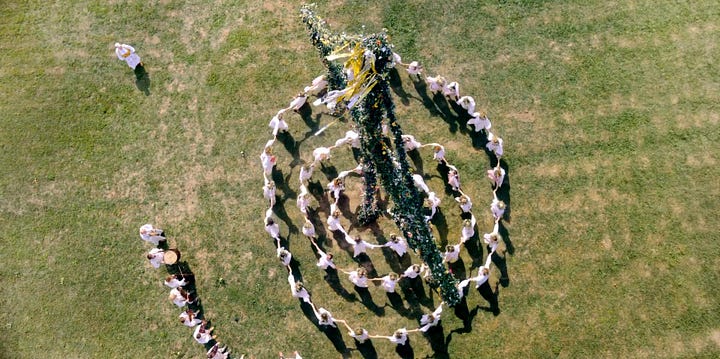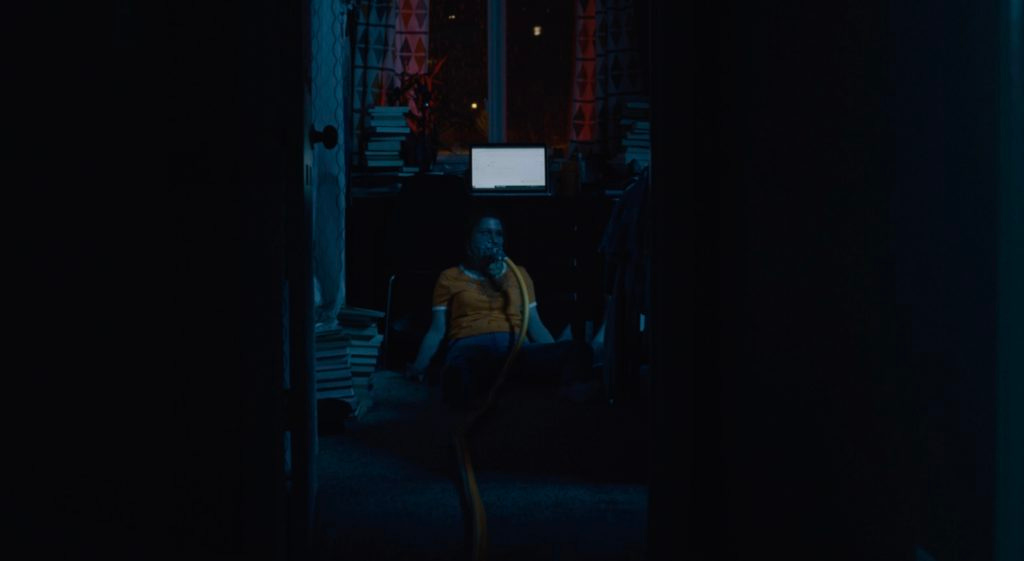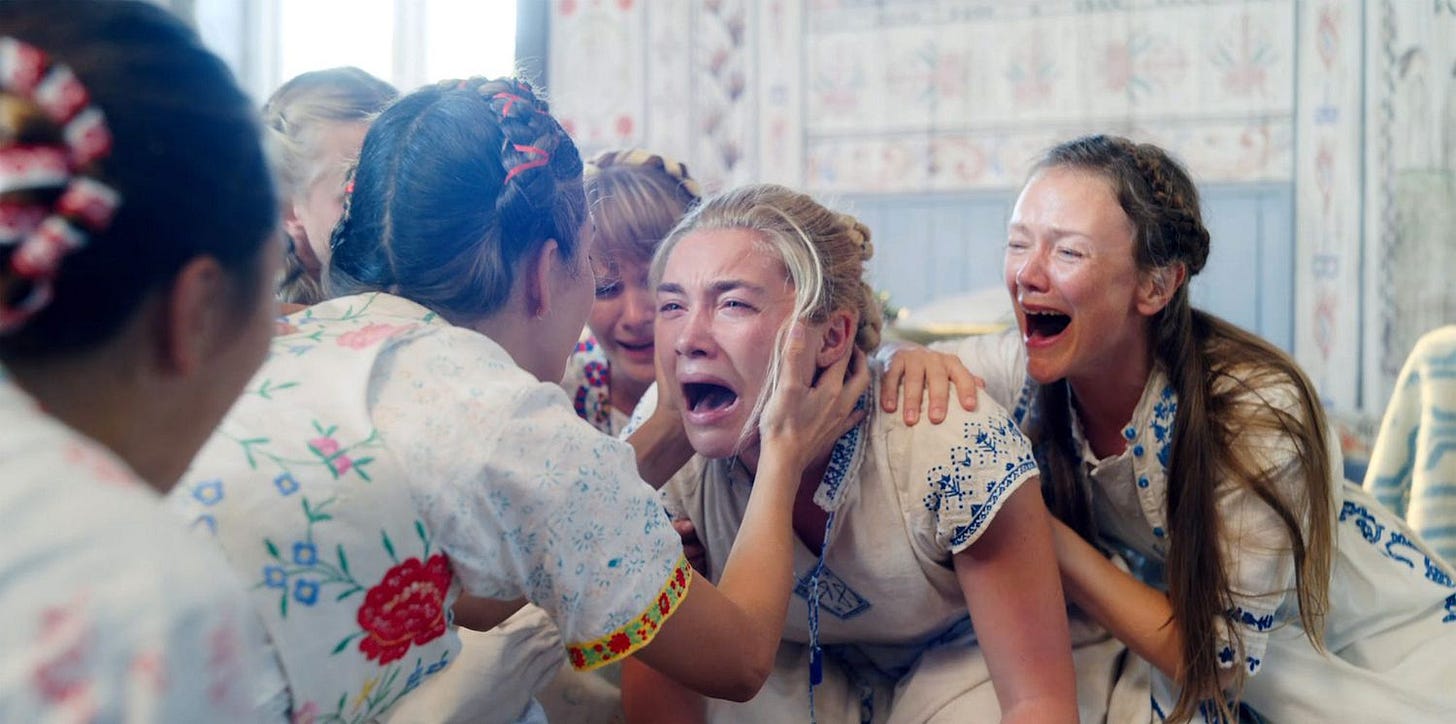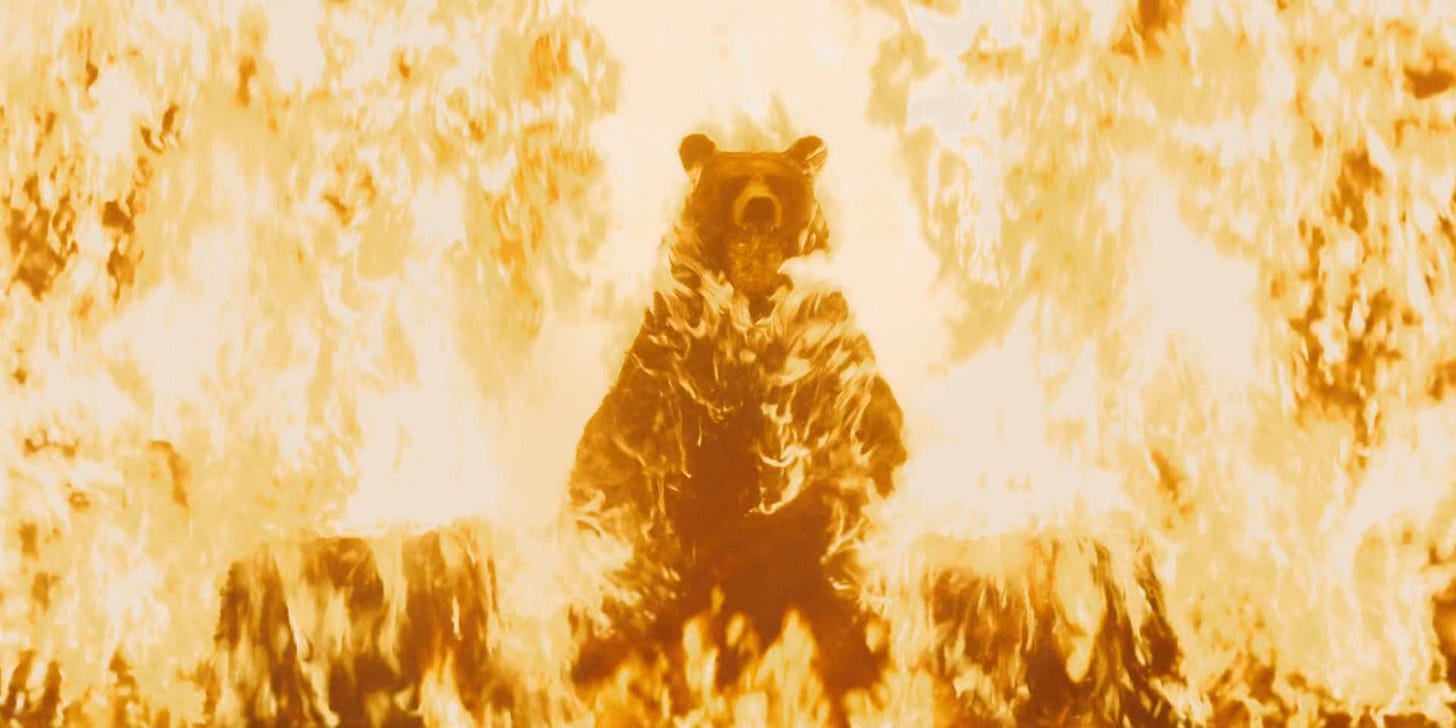‘The Wicker Man’ (1973) and ‘Midsommar’: Retrospective Double-feature!
Are these two films really that similar?
Listen, I know that these two films have already been stacked up against each other and compared to death on the internet over the last few years. But, I figured it’s been long enough now and I have a fucking bone to pick with all the people who say these movies are basically the same. That, and I still encounter way too many people who have never seen or even heard of either film which, to me, is a tragedy. So with all that said, it’s time to don your animal masks and flower crowns because things are about to get very pagan.
SPOILERS for both films ahead!
There was a time back in 2019/20 when nearly every article or thread concerning Midsommar made mention of The Wicker Man. Then came video essays about how the films are “too similar” and the arguments presented are like, “They both have a Maypole and feature gratuitous nudity!” For real, dawg? Is every monster movie the same because they all have monsters featured prominently? It felt like the prevailing take was that Ari Aster’s film basically wouldn’t exist (at least not the way it is) if TWM had never been made. Why? Because they both feature scenes with sex rituals, Maypole dances, and a human sacrifice in a giant flaming effigy at the end? That just makes no fucking sense to me. Just because two movies are in the same genre or two movies have similar visual elements does NOT mean that they’re “basically the same movie.” Not to mention, The Wicker Man wasn’t the first folk horror movie ever made - even it is inspired by other films (The Blood on Satan’s Claw, Eye of the Devil, etc.). Now, I would be reaching if I said that there were no similarities or parallels between the two at all because obviously there are - I just think the argument for whether or not two films are “too similar” should be more nuanced than imagery and general subject matter, alone.
Similarities
This’ll be quick, so let’s do it first. Believe it or not, I do actually think these films have a few things in common. For one, both main characters are on predestined journeys: Sgt. Howie is destined to die the moment he sets foot on Summerisle, much like Dani is destined to become part of Harga the moment she crosses the gateway. The most obvious shared trait between these two is that both films are centered around pagans - two totally different types of pagans, mind you, but pagans nonetheless. So naturally, you’ll see naked folks dancing and Maypoles and things like that in both.


Story
Both The Wicker Man and Midsommar have relatively simple plots, TWM definitely having the simpler of the two. In TWM, the Scottish police send out Sgt. Neil Howie (Ed Woodward) to a remote island community to investigate a young girl’s disappearance. That’s it. No further background information is provided, they just cut right to the chase with Howie arriving on the island to start asking questions within the first five minutes of runtime. Its efficiency allows us to get to the more interesting bits (cult stuff) faster than Midsommar, but at the same time, it left me feeling a little less invested in the actual story overall.
[Note: I did not know that there are three different cuts of this film, one of which includes a scene at the beginning of Howie on the mainland before he sets out to Summerisle. I don’t think it does much but drive home what he’s doing and where he’s going, it doesn’t really add any context and I’m glad it wasn’t in the version I watched.]
On the flip side, Midsommar has a much more complex introduction (if you don’t count the very first shot of an illustrated banner that literally gives away the film’s ENTIRE plot and events).
Dani (Florence Pugh) is trying to cope with her sister’s increasingly concerning behavior while receiving absolutely no support, emotional or otherwise, from her incredibly distant boyfriend, Christian (Jack Reynor). Not only does he not care about what Dani’s going through, he doesn’t even really want to be with her at all anymore but is too much of a coward to break things off. You can imagine the awkward position he’s put in when Dani calls him a few moments later in total hysterics with the news that her sister killed herself and both her parents.
Yikes. Months later, a still grieving Dani finds out that Christian is planning to go to Sweden in two weeks to write his thesis with his college bros we met earlier - and he just never told her. Instead of being honest with her and telling her that he doesn’t want her to come, Christian invites Dani on the trip (without consulting his bros), thus setting the rest of events into motion.
It is here, during each film’s opening setup, that I believe one of the biggest differences between these two movies is most apparent: Midsommar is all about the characters, whereas TWM is all about the mystery. At this point, Midsom still has a bit of time before the characters even touch down in Sweden or any weird shit starts happening because the weird shit isn’t the point of the movie. It uses its time to get you invested in Dani’s story because the events of the rest of the film are tied to her journey. TWM drops you in the same way Sgt. Howie is dropped into Summerisle, and the weird shit starts flying pretty much immediately. The ultimate goal of its story is to get to the big ‘a-ha!’ moment at the end where all is made clear.
Themes
When I initially went to examine TWM and its themes, I’ll admit that I was scratching my head. At first blush, it just read to me as a mystery that wasn’t really trying to say anything beyond the story it presented. Upon a few rewatches, the most glaring themes are tied to religion, specifically the values and morals of Christianity. Even then, it doesn’t really feel like the movie is trying to convert you or anything - I think it’s attempting to relate to its (likely) predominantly Christian audience of the 70s in order to make the film that much scarier.
It reminds me of what writer/director Robert Eggers did with his film, The VVitch - he specifically wanted to make a Puritan's nightmare. In that film, Eggers assumes that everything a Puritan believed in - including the devil, witches, and the like - was real. In TWM, however, they actually make a point to not back up either religion as true. Though Howie prays to God for his escape at the end of the film, it falls on deaf ears and his fate is sealed. On the other hand, the last harvest on Summerisle failed - the pagan practices just didn’t work last time for some reason, but they’re sure that a human sacrifice will provide a bountiful harvest this time. It almost seems like they’re showing the flaws in total devotion to any religion and its practices, period.
Midsommar is a totally different story. Writer/director Ari Aster has been extremely open about the themes and intentions of this movie, which is funny because he didn’t really have to be. Where TWM had me scouring for hidden messages, Midsom damn near beat me over the head with its themes.
For the whole film, Dani is longing for family and emotional connection that she can’t seem to find anywhere else except for in the people of Harga. Even though the people are flawed (i.e. their elderly jump off of cliffs and murder people in cold blood for sacrificial purposes), Dani comes to accept them the same way that they accept her - flaws and all. She gets what she so desperately craved and is able to shed all of her excess baggage (Christian and most of his bros) in the process. Despite Aster claiming that Dani’s ending is a happy one, I think it’s a bit more sinister than he leads on. The biggest factor to consider is that Dani is in an emotionally vulnerable state and is being actively manipulated into surrendering herself to Harga by the members of the community. Yes, she wants to find a family, but Harga isn’t allowing her to ‘find’ them.
As a matter of fact, the people of Harga seem to make an active effort to distance Dani from Christian and his friends. While being a shoulder for her to cry on, Pelle asks Dani “Do you feel held by him [Christian]? Does he feel like home to you?” It would seem really sweet if you didn’t know that Pelle is trying to get Dani to join his cult. You also see even earlier how Pelle is trying to get his hooks into Dani before they’ve even left for Sweden (this, like the opening banner, plays into something Aster loves to do with his movies, and it’s to seal the fates of the characters before anything has actually happened). For Christ’s sake, they force Christian to perform a sex ritual and after Dani just so happens to see this, she decides to light his ass up.
There are a ton of little things like that. I think it does a lot to make the story feel less black-and-white and makes rewatches a lot of fun.
In conclusion (I guess)
Listen, I’m not an authority on anything - especially not movies. In all honesty, I really love both of these films and this was more or less an excuse to talk at length about movies I think are cool. I highly recommend that you check out both of these films this Halloween because, whether or not you think the movies are too similar, I think they both offer something completely different from most other movies of today and that’s pretty cool.















Excellent write up!